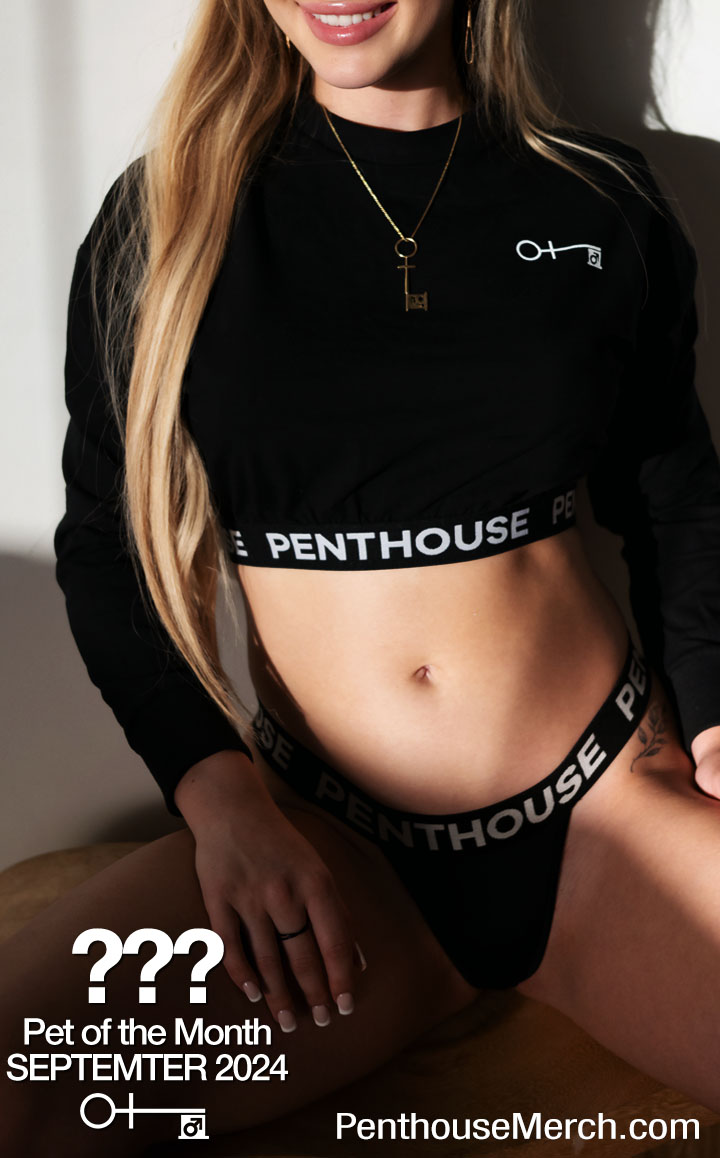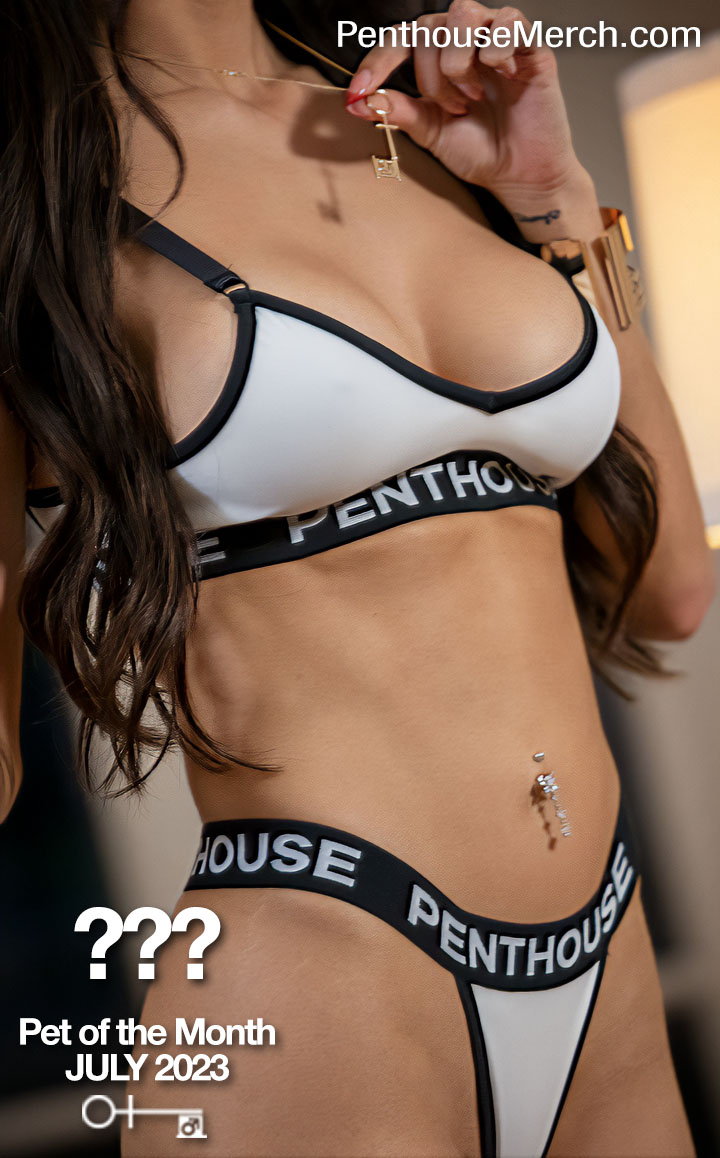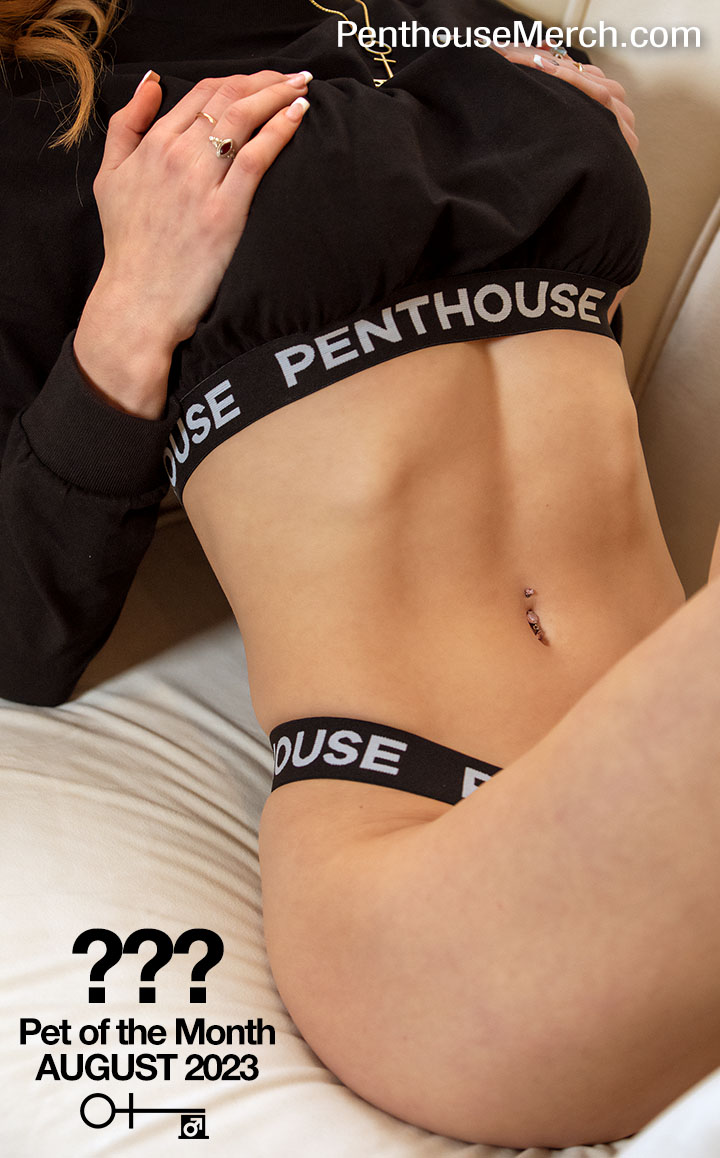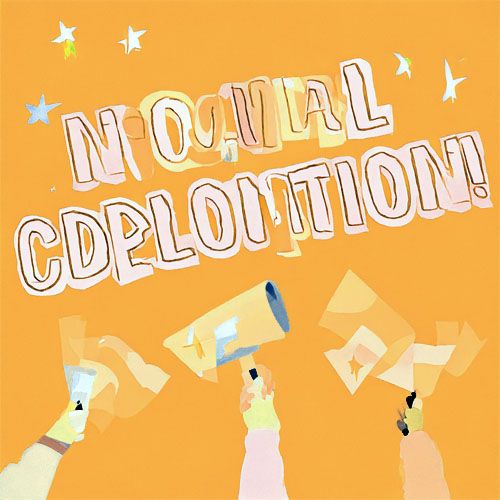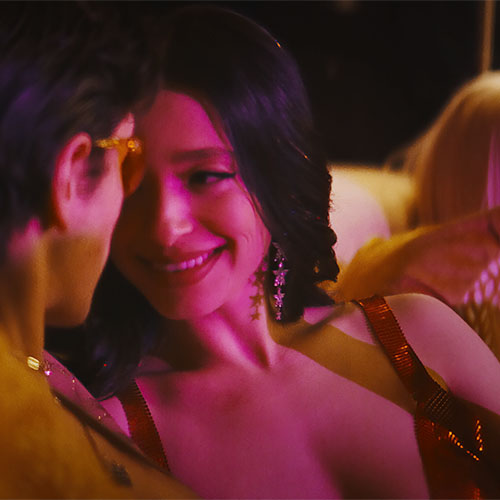Between its outings, shamings, and mischaracterizations of those in the sex industry, it’s not hard to understand why the Netflix documentary series “Hot Girls Wanted: Turned On” is so controversial within the world of porn.
The Journalist and the Pornographer
“Nobody who asks about their fantasy ever wants to hear the truth,” wrote veteran porn performer Tyler Knight in his 2016 memoir Burn My Shadow.
As Knight reveals in the book, he refrains from telling fans about the realities of the industry he’s seen over his decade-long career. Judgments — both negative and positive — about something as divisive and complicated as the adult industry are often preconceived and therefore fixed, and there is no anecdote, fact, or statistic that can sway them.
The same notion of willful ignorance in the face of fantasy can also apply to journalism. Reporters often project their fantasies onto their subjects, asking questions without bothering to listen for the truth. And in return, a subject may fantasize that their truth is being heard. When the final product comes into existence, the journalist has failed to get the real story, instead showcasing only the source material that reflects their own biases and perspectives.
The subject, meanwhile, sees their name and likeness attached to words they have said, but presented in a manner that supports a point they never intended to make. And they may very well leave the experience feeling confused, angry, and downright bitter.
It seems that the messy results of these two dueling fantasies reaching a breaking point is at the heart of the controversy surrounding Hot Girls Wanted: Turned On, the recently-released documentary series from Netflix.
Directed by Jill Bauer and Ronna Gradus (and executive produced by actress Rashida Jones), the series attempts to examine the new paradigms of sex and dating in the digital age, while following up on the filmmakers’ examination of the pornography industry that began with their 2015 documentary Hot Girls Wanted.
Both Hot Girls Wanted and its companion series seek to make the argument that women are being exploited by the adult industry, but if you hear the porn performers who participated in the original documentary tell it, they were subjected to precisely the same sort of exploitation at the hands of the Hot Girls Wanted directors.
Hot Girls Wanted focused on Riley Reynolds, a porn agent and performer then based in Florida who’s shown recruiting young women off the internet and into the adult industry, housing them in his dorm-style apartment, and farming them out for sex scenes. The film ignores the backdrops of class and economics that might drive these women to make the decision to enter the industry, instead framing their stories as tragic and pitiable. Hot Girls Wanted drew the ire of many in the industry, who felt that while it might seem accurate if considered in a vacuum, the film was ideologically anti-porn and failed to reflect the multiplicity of experiences in the adult industry, which is largely based in the Los Angeles area.
“I feel like the documentary was looking for an angle and found women who fit their story,” says Kayden Kross, a performer and director who has written extensively about sexuality and the sex industry. “It’s completely off-base to go to the Florida porn industry and present it as the entire industry, when really it’s one corner of the market. That’s a bad way of presenting information.”
“Some people felt enlightened by [the documentary], and some people felt it stigmatized the business and the industry. That was not our intention,” Rashida Jones told Rolling Stone while promoting Hot Girls Wanted: Turned On. “In the new series,” she continued, “we wanted to show that there are many stories in the porn industry.” (Jones’s representatives did not respond to Penthouse’s request for an interview. Requests for comment sent to Netflix, the directors, and the show’s production house Herzog & Company also went unanswered.)
As Jones indicates, the series was intended to be, in part, a corrective to the picture painted by the original documentary, while also offering a wider examination of sex and relationships in the digital age.
The first series episode, “Women on Top,” was directed by Jones personally, and warmly portrays the feminist pornographers Holly Randall and Erika Lust. But subsequent episodes — all directed by Bauer and Gradus — tell stories with a darker, even desperate cast. We meet a former reality-TV star who seems addicted to dating apps and habitually “ghosts” women. In the next episode, we’re shown a cadre of young women who’ve just moved out to Los Angeles to get into porn — one of them spirals out of control, straight into drug addiction. In “Money Shot,” we’re shown a male porn performer, nude, standing over a young woman on her knees, heroically struggling to jerk off onto her face. In “Take Me Private,” a cam girl travels to Australia to meet a longtime customer in the hopes that their online rapport may lead to IRL romance (it doesn’t). The series concludes with “Don’t Stop Filming,” a harrowing episode about a young woman who, spurred by the positive feedback of online strangers, streamed her friend’s rape live on Periscope.
If this is the multiplicity of experiences that Jones and her collaborators wished to portray, then it seems their vision of sexuality in the digital age is a decidedly grim one. And even if its creators approached the project with pure intentions, many who participated in the series walked away feeling burned.
“Money Shot” — which split its focus between Riley Reynolds (by then operating out of L.A. and engaged to his client and fellow performer Gia Paige) and a pair of African-American performers, Tyler Knight and the relatively inexperienced Jax Slayher — proved to be particularly problematic. Knight, for one, claims that the filmmakers withheld the fact that they were affiliated with the Hot Girls Wanted franchise.
‘“I even said on camera Rashida Jones can go fuck herself,” Says Tyler Knight’
“Throughout the casting process, I asked directly [about this affiliation], and they said absolutely not,” reports Knight, calling me from his home on the West Coast. He adds that during filming, “I asked several times what the title of the project was. They were very evasive and wouldn’t give a direct answer, or say that it was being worked out.”
Knight, whose memoir received positive reviews for its writing and story, and who is currently working on a novel revolving around the worlds of MMA and hip-hop, also tells me he felt he’d been deceived regarding the episode’s focus. As he puts it: “I was under the belief that it was an episode about me and my transition from talent to published writer. That, of course, was not the case.”
Knight says he made it “abundantly clear” that if his footage was intended to be used for a documentary under the Hot Girls Wanted brand name or was in any way affiliated with Rashida Jones, he wanted no part of it.
“I even said on camera that Rashida Jones can go fuck herself,” states the author and performer. “There’s no way in the world they could possibly misconstrue my feelings about [Hot Girls Wanted].” Knight didn’t even realize he was in the new series, he says, until he saw an article about the show in a trade publication that mentioned his name.
For her part, Gia Paige says her participation in the original documentary was an uncomfortable one. “My experience with Hot Girls Wanted was very forced,” she tells me in an email, explaining that she felt pressure from both the producers and Reynolds, her then-fiancé, to appear in the episode. Despite her reticence, she agreed, and signed a release consenting to be featured on camera. However, she says she felt uneasy during filming, and eventually requested that Bauer and Gradus not use her footage.
Prior to the documentary’s release, Reynolds broke off their engagement. Looking back, Paige observes, “He wasn’t just my fiancé, he was my agent. He was supposed to guide me and do things that benefited me, not put me in danger and use me for his personal gain.”
Not only was Gia Paige featured in the final cut, the filmmakers interspersed their footage with screenshots from Paige’s personal Facebook page, which featured her legal first and middle names. This exposure, communicated to a wide audience by Netflix, could have provided online trolls with enough information to start a harassment campaign against Paige and her family.
“Shortly after the airing,” Paige states, “every single woman in my immediate and extended family began receiving envelopes FULL of printed pictures–at least 50 in each–of me performing sexual acts. Even if I were not a sex worker, this would be humiliating and devastating.” The experience, she says, was enough to make her consider leaving the porn industry.
Citing Paige’s complaints as well as allegations that the likenesses of other performers were used without their consent, the Free Speech Coalition — a trade group representing the interests of those in the adult entertainment industry — sent a public letter to Jones, Gradus, Bauer, and the Chief Content Officer of Netflix, accusing Hot Girls Wanted: Turned On of “perpetuating unfair labor practices against adult performers on their own production.”
The letter went on to note that the series “may have made the lives of the workers featured in it substantially less safe by increasing the visibility and accessibility of their private information… without regard to how that might affect these performers.” When that letter received no response, the FSC sent a second one expanding on their concerns and intimating that they were exploring the possibility of filing a lawsuit against the series creators. (A June 2017 search of California, Florida, and federal court records indicated that while Netflix gets sued often, neither they nor Bauer and Gradus were the subject of lawsuits related to the Hot Girls Wanted franchise.)
“There have been a number of documentaries about the porn industry,” says porn actress Kayden Kross. “This is the only time I’ve seen the FSC send a letter publicly.” In the adult industry, she goes on to explain, “there are a few things you just don’t do. One is exposing legal names — it doesn’t matter how you feel toward the person or how bad your Twitter fight gets, you never expose legal personal information.”
Sex workers run a risk of being outed or harassed, and while some performers are happy to make their legal names public and even perform under them, many others keep such details closely guarded secrets in the hopes of minimizing that risk and creating separation between their personal lives and their porn lives. By exposing someone’s personal details, Kross tells me, “you’re making a choice for someone else, and it’s not your right to make that choice. To do that without permission goes against everything we do.”
What is perhaps most baffling about the situation is the seeming indifference that directors Bauer and Gradus have shown to those who feel slighted or even damaged by the series.
“The narrative has kind of become hijacked, that we exposed sex workers and that we put them in danger by telling the world that they were sex workers, when in fact we never did that,” Gradus remarked to Variety. When Effy Elizabeth and Autumn Kayy, a pair of cam performers, publicly complained that the directors used Periscope footage of them without their permission, the show’s Twitter account responded via Direct Message, saying, “We can put you in touch with our production company so they can explain fair use.” (“Fair use” is a legal doctrine allowing for certain instances, such as news reporting, in which intellectual property may be incorporated into a greater work without its creator’s prior authorization.)
In the Variety interview, Gradus shifted the blame to Elizabeth and Kayy themselves, saying that if the pair hadn’t taken to Twitter to air their frustrations in the first place, “We never would have known [who they were, and] viewers never would have known.”
In a subsequent interview with the New York Post pop-culture website Decider, Bauer and Gradus confirmed that Paige had asked to be removed from “Money Shot,” but said they chose to disregard her wishes. As Gradus put it, they “went as far as we felt we could while still maintaining the integrity of the story.”
As for Paige’s complaint that showcasing her legal first name put her in danger, the filmmakers pleaded ignorance to the impact of their actions. “I’m not sure how knowing her first name, her real first name, would have led anybody closer to finding her,” Gradus told Decider.
The directors seem not to have taken into account the fundamental power dynamic between journalists and their subjects — especially when those subjects belong to vulnerable communities.
“We’re talking about one of the most marginalized and non-taken-seriously jobs in the world,” says Dr. Chauntelle Tibbals, a sociologist and the author of Exposure: A Sociologist Explores Sex, Society, and Adult Entertainment. When you’re a sex worker, Tibbals explains, “anything you say is rendered either questionable or not valid.” And when it comes to journalists — members of a field whose credibility rests on the assumption that they use their platform to convey accurate information — sex workers face “a great power differential.”
As Janet Malcolm wrote in her groundbreaking 1990 book The Journalist and the Murderer, “The disparity between what seems to be the intention of an interview as it is taking place and what it actually turns out to have been in aid of always comes as a shock to the subject.” Being a journalist’s subject, continues Malcolm, can result in a “dizzying shift in perspective,” a process of “deliberately induced delusion, followed by a moment of shattering revelation.”
In today’s social media-addled landscape, of course, we are all media creators as well as consumers and believe we know the game inside and out. But instead of making us savvier when it comes to dealing with the media, it simply adds another, somewhat postmodern, layer of delusion. The subject knows that they are performing for an audience and aims to conduct themselves as such, while the journalist works to obscure the nature of the construct that both have created. A good reporter, regardless of medium, is a cross between a psychoanalyst and a trial lawyer. They ask personal, even invasive, questions of their subjects, examining their actions while probing for the motivations behind them, only to use this information as raw material with which to construct a narrative, logical and tidy, preferably close enough to the truth, and one always designed to explain one thing or another to an audience they’ve pretended thus far is not part of the equation.
If the journalist does an ethical job, each party manages to walk away relatively unscathed. The subject may not agree with the piece’s overall point, but feels they were not misled or mischaracterized during the process, nor has their physical and mental health been jeopardized. They have been granted an opportunity to contribute to the public discourse, and for many, that is enough. If the subject of a journalistic work does not feel this way, then perhaps the journalist has not behaved ethically, or has acted callously or carelessly, overlooking their subject’s humanity in the service of making their larger point.
“Even if its creators approached the project with pure intentions, many who participated in the series walked away feeling burned.”
“When people do what we do for a living,” says Tyler Knight, “we’re reduced to our lowest common denominators and characteristics, and are made to seem less than human. The problem is, we are real-life human beings, and that was completely not taken into account by the creators of [Hot Girls Wanted]. Because these people weren’t seen as human beings with fears, dreams, and even families, they had no issue outing them to the public. There were no perceived consequences.”
Despite the adult industry’s relative powerlessness to defend themselves against negative press, many within the community still actively seek out media coverage, says Kayden Kross.
“Porn will really take any breadcrumbs the media will give it,” she says. “Obviously, we don’t like negative coverage, but we’ll roll the dice hoping for positive coverage just to get coverage. There’s a trust issue, but we’re so hungry for any relationship that we continually come back to it.” It is this mind-set, perhaps, that helps explain why sex workers chose to appear in Hot Girls Wanted: Turned On, despite the franchise’s negative reputation within the industry.
Meanwhile, market forces within the modern media landscape tend to reward projects that espouse a political message, says Kevin Munger, a PhD candidate at the NYU Social Media and Political Participation Lab, whose work centers on the internet’s effects on political polarization.
“The fundamental reality of modern media is that everything does better if it’s attached to some kind of social identity,” observes Munger. By imbuing Hot Girls Wanted: Turned On with examples designed to provoke a strong reaction rather than presenting the porn industry in a neutral manner, Bauer and Gradus may have been making a calculated decision designed to increase their film’s visibility, Munger speculates. He notes that when it comes to the internet, it’s important for a piece to provoke a reaction, regardless of whether it is positive or negative.
“The fact that there’s a controversy clearly helps the series,” he points out, “because now everyone is able to have a ‘take’ that allows them to say what they think and convince other people whether they belong to a relevant social group or not.”
While it’s true that Gia Paige may have signed a release and that fair use may have given Bauer and Gradus the grounds to use Periscope footage of Effy Elizabeth and Autumn Kayy, that doesn’t end the discussion. Just because something is legally sound doesn’t mean that the subject is free from risk.
The increased exposure provided by the documentary creates the conditions for what those in academia refer to as “context collapse.” “Oftentimes, people are performing online for a relatively small audience,” Munger observes, “but there’s always the possibility that the audience will become much larger and that whatever kind of specific social codes or language that made sense in the original context aren’t necessarily going to make sense in the bigger context.”
For the performers in Hot Girls Wanted: Turned On, this means that they were no longer presenting for a relatively small, self-selecting group of fans, but instead a much more generalized audience, one less disposed toward enjoying porn, and whose biases may have been stoked by the series’s underlying viewpoint.
To Dr. Tibbals, Hot Girls Wanted represents “a wider narrative of sex-negativity and sex-normativity,” one that dictates which forms of sexual expression ought to be acceptable and which should not. The series exalts the more sensually-minded work of directors Erika Lust and Holly Randall, placing them in opposition to porn that depicts rough and BDSM-style sex, as well as other sexual acts that some might consider demeaning. Such a stance contains within it shades of the feminist anti-pornography movement of the late 1970s and early 1980s, when activists such as Andrea Dworkin and Catherine MacKinnon argued that porn depicting aggression toward women violated the rights of all women and ought to be banned. However, more recent feminist thinkers and scholars have questioned this mind-set, contending that such a stance both creates division within the feminist community and ignores the complicated social and psychological issues that draw people to such pornography in the first place.
For self-identified feminist filmmakers such as Jill Bauer and Ronna Gradus to render judgment on certain types of porn is “hypocritical,” Kayden Kross argues. “You have these women whose issue with men is that they act patriarchal, and then they turn around and tap you on the head like you’re a child who needs to be told what to do.” Such a narrative, Kross adds, “creates hang-ups and alienates people — it either harms people quietly who fold under it, or it alienates the people who refuse to agree with it.”
The documentary format used by Hot Girls Wanted: Turned On is so powerful precisely because it exhibits an aura of veracity that allows filmmakers to present footage in a way that can pass off opinion as fact. As sociologist Tibbals points out, “People still think of the [documentary] style as having some sort of credence, but truly, it can be manipulated like any other content form — it can be kind of a bait-and-switch. When one uses the journalistic documentary lens as a veil to distract from the fact that what you’re really doing is presenting your own platform, that’s highly unethical and extremely counterproductive in terms of getting any real information out there to people.”
“I feel like [the series] was a cross between journalism and reality television,” says James Rhine, who served as the centerpiece of episode two, “Love Me Tinder.” Rhine has a unique perspective when it comes to this sort of thing — in addition to appearing in the Netflix series, he was a cast member of the sixth and seventh seasons of Big Brother, a fact that was played up in the “Tinder” episode’s final cut.
“The fact that they formatted it around ‘former reality star’ wasn’t deceptive,” Rhine says, “but it was clickbait.” He also takes issue with his episode’s arc, which centered around his use of dating apps to meet women, only to “ghost” them by breaking off all contact. As Rhine puts it: “Hot Girls Wanted was pitched to me as a story on dating and technology, and that they were looking for someone who used apps for dating. I didn’t realize it was going to be about this whole ghosting bullshit. It didn’t go in the direction that I was told things were going to go.”
That said, Rhine did not come away from the show with purely negative impressions, and even compares it positively to his previous television experience. While on Big Brother, he says, he was always conscious that he was a cast member on a TV show, and that producers were looking to manipulate him and fellow cast members by lying to them or instigating conflict. For him, Hot Girls Wanted was a different experience. “At no point did I feel like the people who were interviewing me didn’t care about me getting everything I had to say out,” he says. “We had deep conversations — some of them even felt like therapy.”
“People still think of the [Documentary] style as having some sort of credence, but truly, it can be manipulated like any other content form.”
And though Rhine wasn’t completely happy with the final results, he has tried to consider the situation from all angles. “There are so many different factors that go into a production,” he reflects, explaining that often the arc of projects such as Hot Girls Wanted changes as producers go over the raw footage they’ve obtained. “They got a good story, but I was like, Aw man, what the fuck?” Regardless, Rhine says, “I think [the producers] were good people, and I would even do it again.”
Bailey Rayne, a cam performer and agent who helped mentor an apartment full of fledgling female performers in the episode “Owning It,” had similarly mixed feelings about the material Bauer and Gradus used to tell the story. “You could kind of tell they had an agenda, and they took footage that fit that agenda,” she says by phone. “There were girls [in the house] who were really inspirational, and they didn’t even make the cut. When I asked one of the producers about it, they said some of the positive things were left out so that people could understand and sympathize with our struggle. I was like, ‘We don’t want people to feel bad for us! We already have that.’”
Rayne and the young performers spent several months with the Hot Girls Wanted producers, she says, and she tried her best to present the industry in the most positive light possible. “My big thing was: No drugs in the house. That lasted not even a day. Before filming, I’d go and clean all the drugs out of the house — in a few shots you can see me in the background with trash bags.”
Even still, one of Rayne’s charges was filmed casually doing drugs on camera and was portrayed in the episode as having fallen into drug abuse as a way to cope with the pressures of the porn industry. Though Rayne says she felt this wasn’t a completely accurate reflection of the events as they occurred, she understands why the producers framed the situation in the way that they did: “I can’t blame them for using [that footage], because that’s gonna sell really well.”
Many people I spoke to for this piece have actively avoided Hot Girls Wanted: Turned On since its release. “It doesn’t really appeal to me, especially as somebody who’s in the industry,” said Seth’s Beard of the Vegas-based production house WoodRocket. “It’s purposely going out and hurting people in my industry just for the opportunity to get some publicity.”
And while Rayne, too, sympathizes with this viewpoint, she feels it’s irresponsible for the porn industry to criticize Hot Girls Wanted: Turned On without having seen it. “We can’t ignore it as a whole,” she states, “because the public isn’t going to. People are trying to learn through this series. If we aren’t informing ourselves, we can’t correct any misconceptions [that people may be left with].”
Bailey Rayne also suggests that there might be a kernel of truth to some of the more sensational critiques presented by the series. Porn, she notes, “is not a perfect industry. The people who are upset because this industry wasn’t portrayed perfectly need to step back and consider that this was a documentary, not just an entertainment piece. If negative things did happen in front of the cameras we can’t expect a documentary series to lie for us — it’s not like they made that footage appear out of nowhere.”
Perhaps, then, it is not the substance of the critiques of the porn industry presented by Hot Girls Wanted: Turned On that is the true issue, but instead the outsider’s perspective from which they are levied. In order to diagnose the problems with porn, observes Tyler Knight, “you need credibility, and credibility comes from practical experience and knowledge.”
Despite the fact that his memoir Burn My Shadow arguably serves as a more damning excoriation of porn than the Hot Girls Wanted franchise does, Knight tells a story that is uniquely his own in a way that adheres to the rules and rituals designed to protect porn performers from being demonized by the outside world. He lets episodes from his own career serve as a series of parables for the good and bad of porn, from the giddy incredulity he occasionally feels about getting paid to have sex on camera to on-set discrimination from both directors and performers. He also discusses STD scares, a Viagra habit that nearly claimed his life, how having sex with a stranger in a room full of people can grow to feel rote and mechanical, and the difficulties of keeping his porn career and personal life completely separate. He places these events in the context of a narrative of childhood sexual abuse, entering porn to escape homelessness, and the institutionalized racism he faces as a black man living in Los Angeles. (And unlike Hot Girls Wanted: Turned On, Knight’s book is funny, too. At one point, Knight experiences a mid-blowjob, Viagra-induced hallucination in which a mass-produced dildo molded in the shape of his own penis tells him to start a blog.)
One of the takeaways of Burn My Shadow is that pornography is both a symptom and reflection of societal ills, not the cause of them, as Hot Girls Wanted would have its viewers believe. Furthermore, it makes clear that the struggles facing porn performers — inequality, hostile work environments, feeling alienated from their labor, and worries that their careers might be negatively affecting their health — are not all that different from those of the average worker. The problems Knight highlights are issues of workers’ rights, not of morality, and they’re more complicated and less easily resolved than Hot Girls Wanted: Turned On’s thesis that porn and technology perpetuate antisocial behavior.
“The ironic thing,” Knight says of the series, “is that it takes so much time filming the inner lives of their subjects, but completely misses the inner lives of their subjects.”
As an author with a relatively high profile, Tyler Knight had a substantial audience willing to learn about the realities of the porn industry. However, even if a book such as his crosses into the mainstream and shows up on the New York Times best-seller list, its potential impact pales in comparison to that of a branded documentary series on the Netflix platform. As Dr. Chauntelle Tibbals reflects, “Because people don’t have easy, accurate information about what it’s like to work in the sex industry, they continue to look at narratives that are accessible and conflate them with accurate information. That does so much damage, and the saddest thing about it is Hot Girls Wanted: Turned On could have done real good. It’s a missed opportunity.”
One always benefits from forming one’s own opinion, thus we encourage you to see the show for yourself, if you can swing the cost of a Netflix subscription currently. … This editor can, however, relate a personal story from his very early days in the porn star management business. One of these “mainstream” opportunities arose for a group of my clients, so I asked a much more experienced Jane Hamilton (Veronica Hart, in her performing days) what she thought of the offer. Jane said something I quote for other people to this day (and that was many, many days ago): “It’s no fun going to a turkey shoot when you’re the turkey.”


















